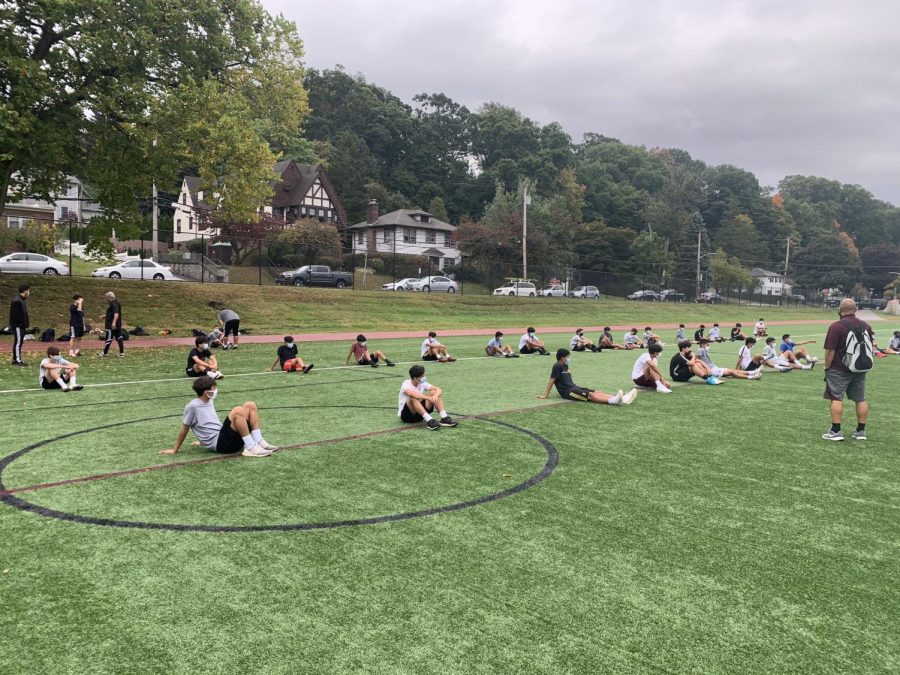Ossining Athletes Reflect on the Restrictions Imposed by Governor Cuomo on Local Sports
September 30, 2020
With the COVID-19 pandemic, sports are going to look very different than they have in previous years. Starting September 29th, sports deemed low-risk such as tennis, soccer, cross country, and field hockey will be able to practice and play. With masks and COVID safety protocols in place, low-risk sports will have practices and meets that diverge from the previous standards of play. Unfortunately, higher-risk sports are only allowed to practice. Cuomo has not permitted such sports to engage in games until December 31st, or possibly an earlier date if a COVID-19 vaccine is found and distributed. As high-risk and high-contact sports, football, lacrosse, wrestling, and volleyball are restricted to practices with limited contact in individual or small group settings.
During an interview with class of 2022 three season athlete, Jonathan Benitez, Benitez voiced his displeasure about the policy set by the state. “[While] I dislike the restrictions on sports…they are understandable especially with high-risk sports which could spread COVID-19 to a high degree making it a fair action by [NY].” Benitez also expressed his concern, which is a common sentiment felt by athletes, explaining “I’m worried about not having a wrestling season since there’s no real safe way to, well, play the sport. You’re in front of people’s faces and grappling each other, but it is what it is, I’m just glad to be back in school.” Many athletes are of a similar mindset, as it is disappointing to know that all high-contact sports will not be the same, as it will be hard to replicate a safe environment without changing how the sport is played. Benitez also mentioned that the lack of games could play a role in how players perform in practices, saying “I think it will affect people’s readiness and motivation since there’s no cut and dry time so you may be underprepared or disappointed at the number of games you end up having.” When I asked Betto Culcay, an OHS senior and varsity athlete, about how he felt about the restrictions imposed, he stated, “No, they are not fair. In terms of keeping people safe and from spreading [COVID-19] they are, but the general idea of delaying sports and reducing the chances of athletes from being recruited is sad. It’s unfair for the graduating Class of ’21…. As far as restrictions go for competitions, they will be irritating to deal with. But if it allows us to compete and have a season we have no other choice to follow then to the rules.” These restrictions pose another issue in and of itself, as seniors will be vying for scholarships, and not all will have the opportunity to compete in games. When asked about possible compensation for those who were not able to compete for scholarships, Culcay replied “Yes! [F]or track and [field]. The [A]rmory is wanting to host meets for college recruiting. I think that’s a wonderful idea. For other sports, it may be more difficult on how to compensate, but this is the general direction they should be going.”
These interviews indicate a consensus amongst athletes about sports restrictions. While many understand the restrictions, it is extremely frustrating to see some be able to participate in games, while others will be at a disadvantage. The balance in creating a safe environment in which sports can be played will be a difficult one to maintain throughout the year, and is largely dependent on the progression of the COVID-19 pandemic and compliance with CDC guidelines.



